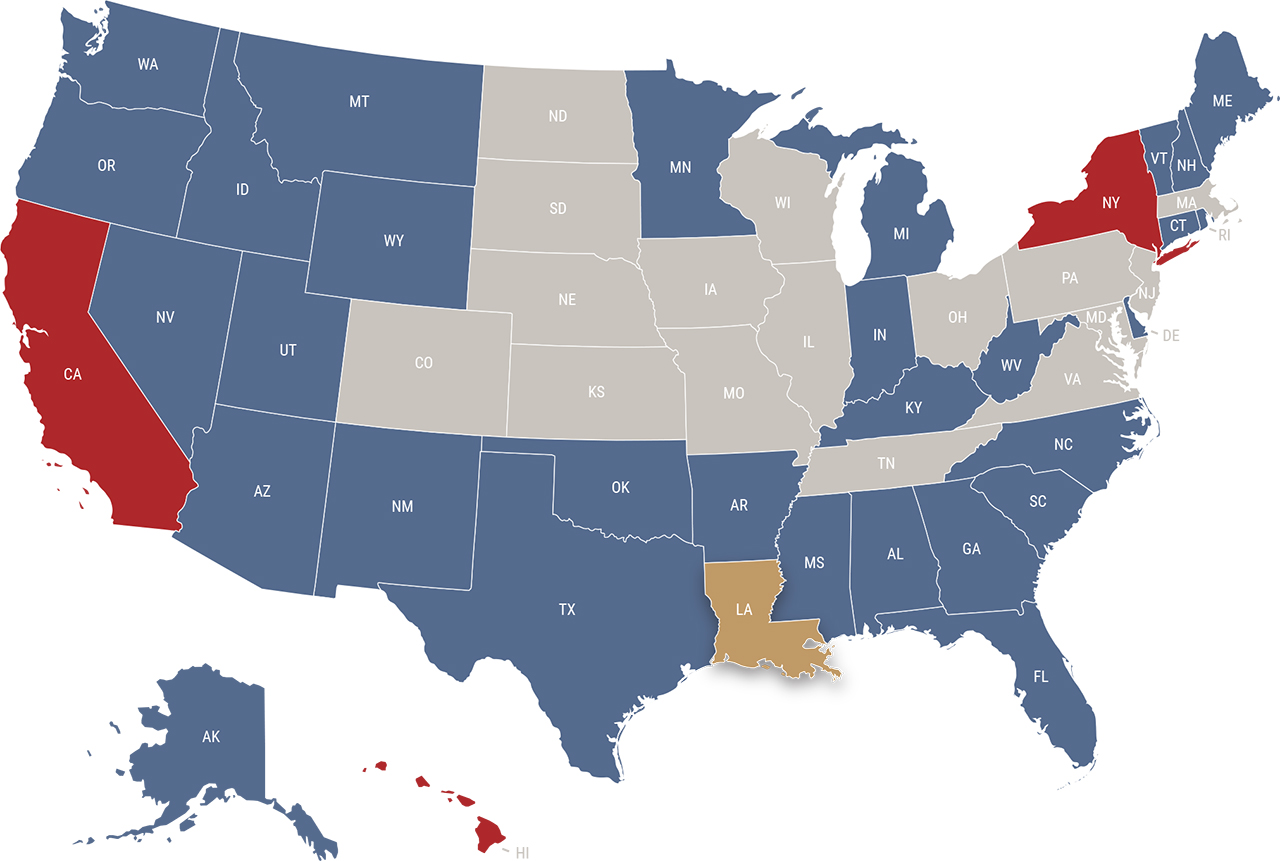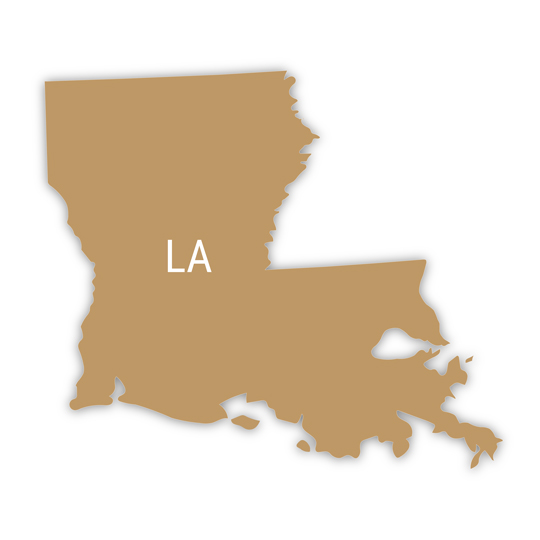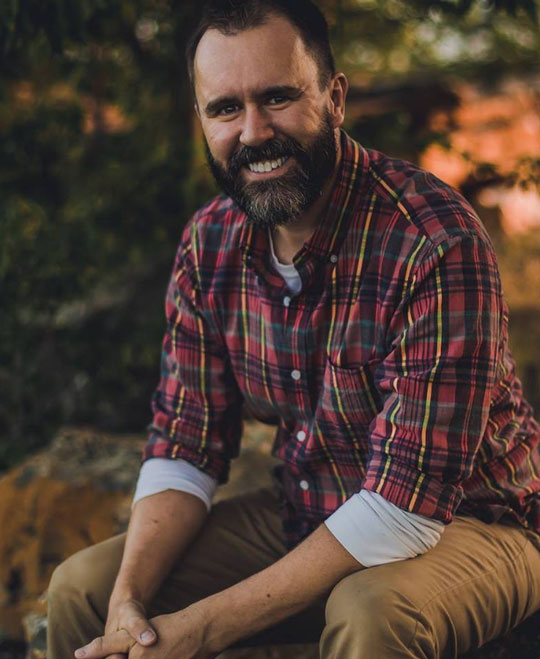Louisiana
- Alabama
- Alaska
- Arizona
- Arkansas
- California
- Colorado
- Connecticut
- Delaware
- Florida
- Georgia
- Hawaii
- Idaho
- Illinois
- Indiana
- Iowa
- Kansas
- Kentucky
- Maine
- Maryland
- Massachusetts
- Michigan
- Minnesota
- Mississippi
- Missouri
- Montana
- Nebraska
- Nevada
- New Hampshire
- New Jersey
- New Mexico
- New York
- North Carolina
- North Dakota
- Ohio
- Oklahoma
- Oregon
- Pennsylvania
- Puerto Rico
- Rhode Island
- South Carolina
- South Dakota
- Tennessee
- Texas
- Utah
- Vermont
- Virginia
- Washington
- West Virginia
- Wisconsin
- Wyoming
If you hold a Louisiana Resident Adjuster License or a Louisiana Designated Home State License,
you can get a reciprocal license from any state highlighted in blue below by simply applying for it.
IMPORTANT INFORMATION
– Reciprocal licenses are only offered when you hold an equivalent license or a license with more lines of authority than what you are requesting.
– Alaska and Arizona do not accept designated home state, or DHS, licenses. If you hold a Louisiana DHS license, you must pass an exam in those states to adjust claims.
– The Louisiana Department of Insurance (LDI) will require all Texas residents who are applying for a nonresident Claims Adjuster license in Louisiana to supply a copy of their Texas-issued driver’s license to confirm Texas residency. Applicants may provide a copy of their driver’s license by uploading to the NIPR Attachment Warehouse or by emailing a copy to producerlicensing@ldi.la.gov. The email should include the applicant’s name and NIPR transaction number in the email subject line.




